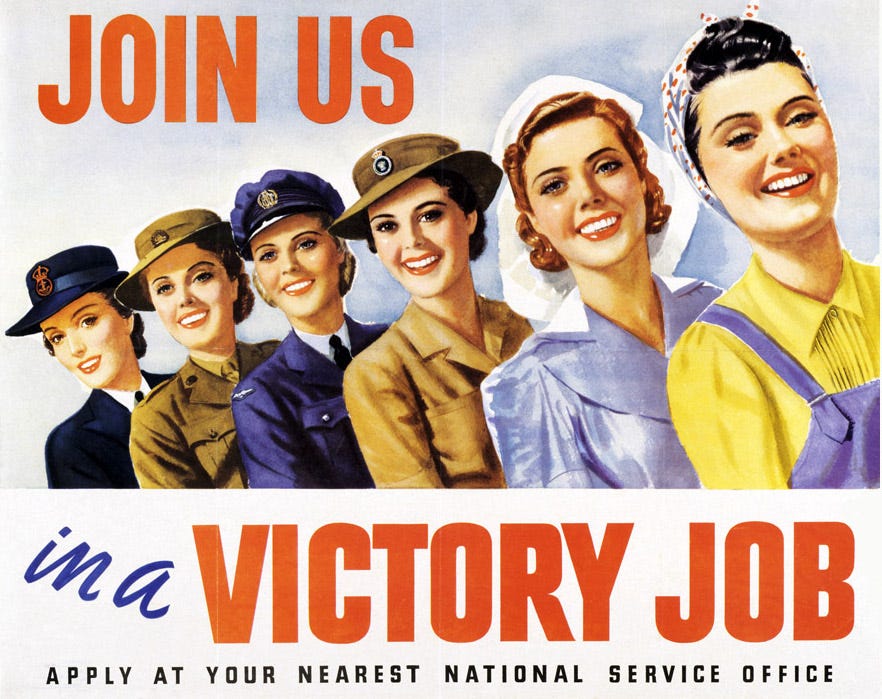On the language of war
How COVID as a common enemy fails the test of metaphorical usefulness
I read this morning of the NSW Government’s plans to deploy an army of retired teachers, recent grads and even admin staff to cover teacher shortages caused by COVID. The government needs at least the appearance of a plan and the UK has gone down a similar route, with mixed results. Still, it has the appearance of a plan.
There is plenty of commentary online already about the potential problems of inviting our most vulnerable and least experienced teachers into the classroom at a time of crisis. And there’s the question of where this under-utilised supply has been hiding during an already chronic pre-COVID teacher shortage. The frustration of fast-tracked accreditation is another insult to teachers who have undergone the onerous and dubious process, and paid for the privilege of teaching. But what I want to talk about here is the language of war, and how it is a comically inappropriate and even counterproductive way to appeal to teachers.
On COVID as the enemy
The broad problems with conceptualising COVID as a sentient and malevolent enemy are similar to the problems I have with presenting cancer as a battle to be won1. But I get it - nobody wants to be struck down by an uncaring universe! And defeat of a common enemy carries some virtue-currency. I also think that conceptualising the disease as wilfully malicious goes some way to deflecting attention from the ineptitude of government responses.
The recruitment plans have been represented in terms like ‘deployment’ and ‘combat’ with the promise of an ‘army’ of teachers. The coverage has been similar in the UK with one (male) interviewee here adopting that language of self-sacrifice, saying “I'm happy to put my head over the parapet and help out.” It reminds me of World War II where women were recruited to enter the workforce to help the war effort. But there are several problems with this analogy.
On flawed analogies
The language of war is an oddly gendered and masculine response to what is overwhelmingly going to be a women’s problem. Something I have noticed is that the media coverage is strangely gender balanced, with a roughly equal number of male to female interviewees in an industry where no such balance exists. Two in three teachers are women in NSW so this ‘army’ will be predominantly female and in all likelihood will consist mostly of older women. The commanders in chief are men like Perrotet and Lieutenant John Frewen - whose vast logistical capabilities and command of an actual army have not yet solved a single supply problem. Imagine the recent grads on the front line, like the young, inexperienced men who lied about their age so that the could enlist and serve their country. Now imagine the mostly sexagenarian women as weapons in the battle against online learning. In lighter times, it would be comical.
For the record, I am in favour of a return to school. But if I were a retired teacher, I strongly doubt that I would be inspired to put myself in harm’s way to essentially mop up the existing problem of teacher shortages and the serial stuff-ups that have resulted in so many missed opportunities to flatten the curve. I may be inspired to throw on a mask and work in an unventilated room to support the already existing ‘army’ of women who would inevitably carry the bulk of the load, should schools close. COVID has had a disproportionate effect on women, who have borne the childcare and online-learning burden at home, have had working hours reduced and who are more likely to be working in essential roles and industries at the front line.
Sometimes the importance of language is overstated and it’s often weaponised. But we have also seen the way that it can have a real impact. I think it’s time to look at metaphors like this as unhelpful and push back against media narratives that are not fit for service.
As an aside, if you like great writing, check out Caitlin Flanagan’s brilliant essay on this topic - and then forward it to a friend who has cancer!


